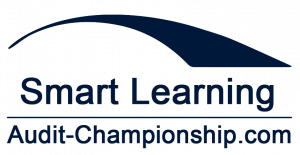Governance Audit Techniques
– Equipping Auditors to Safeguard Ethical, Accountable, and Sustainable Governance –
Internal Audit Training Description:
Governance failures remain at the heart of the world’s most significant corporate crises—from Enron to Wirecard. In today’s environment, investors, regulators, and stakeholders demand more than compliance; they expect boards and leadership to embody accountability, transparency, and ethical stewardship.
This ARC audit training provides auditors with practical techniques to assess governance frameworks holistically: from board composition and leadership accountability to ethical culture, stakeholder engagement, and ESG alignment. Participants will explore real-world case studies, apply innovative audit methodologies, and learn how to integrate technology (AI, analytics, predictive tools) into governance audits.
Aligned with the 2025 Global Internal Audit Standards and anchored in international frameworks such as the OECD Principles of Corporate Governance, this training enables auditors to critically evaluate governance systems and deliver insights that strengthen trust, resilience, and long-term value creation.
Participants leave with actionable tools and a structured Governance Audit Guideline that bridges best practice with practical fieldwork, empowering them to act not only as “guardians” but also as “gardeners” of governance, cultivating sustainable oversight.
Learning Objectives | Internal Audit Methodology Training:
By the end of this training, participants will be able to:
- Understand governance audit fundamentals – Define the purpose, scope, and methodologies of governance audits, aligned with the 2025 Global Internal Audit Standards and OECD Principles of Corporate Governance.
- Evaluate governance structures – Assess board composition, leadership accountability, and decision-making processes for effectiveness, transparency, and ethical alignment.
- Analyze governance failures – Apply lessons learned from major case studies (Enron, Lehman Brothers, Volkswagen, Wirecard, etc.) to strengthen audit practices.
- Audit ethics and culture – Identify and assess ethical risks, compliance frameworks, and cultural drivers of governance behavior.
- Apply governance audit methodologies – Use document reviews, interviews, stakeholder surveys, and comparative benchmarking as structured audit techniques.
- Leverage technology in governance audits – Employ AI, analytics, and predictive tools to enhance governance evaluations.
- Integrate ESG into governance audits – Assess how environmental, social, and governance criteria are embedded into governance practices and reporting.
- Develop governance audit guidelines – Build structured audit approaches for leadership oversight, risk governance, stakeholder engagement, and board independence.
- Cultivate sustainable governance – Apply the “Gardener of Governance” philosophy to support continuous improvement, accountability, and resilience.
Agenda:
Module 1: Setting the Stage – Why Governance Audits Matter
- Governance as the “tone at the top”: why boards and leadership accountability shape risk culture
- From compliance to value: governance audit as a strategic tool, not just a regulatory requirement
- Mapping global frameworks: IIA 2025 Standards, OECD Principles of Corporate Governance, King IV, UK Code, and emerging ESG requirements
- Interactive Kick-off: “Governance in the Headlines” – participants analyze current governance crises to identify audit gaps
Module 2: Foundations of Governance Audit Essentials
- Defining the scope: what makes governance audits distinct from risk or operational audits
- Assessing board structure and effectiveness – independence, diversity, succession planning
- Reviewing leadership accountability – decision-making transparency and ethical stewardship
- Evaluating culture, ethics, and stakeholder trust – whistleblowing, conflicts of interest, tone from the top
- Practical tool: Governance audit scoping checklist
Module 3: Governance Audit Methodologies – Tools for Assurance
- Core techniques: document reviews, interviews, surveys, observations, benchmarking
- Integrating data analytics and AI: detecting anomalies in board reporting, sentiment analysis in culture surveys, predictive risk models
- Comparative analysis: benchmarking governance maturity against peers and global best practice
- Workshop exercise: Apply stakeholder interview techniques in a simulated board audit interview
Module 4: Learning from Failures – Case Studies in Governance Audits
- Deep dives into Enron, Lehman Brothers, Volkswagen, Wells Fargo, Theranos, Wirecard
- Identifying recurring governance breakdowns: weak oversight, ethical lapses, inadequate board independence
- Lessons for auditors: how to design procedures that detect “soft controls” and cultural red flags
- Case reflection exercise: Teams extract 3 “audit warning signs” from each case and translate them into audit procedures
Module 5: Strategic Governance Insights – Auditing the Future Boardroom
- Stakeholder communication & transparency: reporting quality, investor confidence, ESG alignment
- The “Gardener of Governance” approach (Dr. Rainer Lenz): cultivating resilience and ethical accountability rather than one-off policing
- Leveraging governance audits to strengthen organizational strategy and sustainability
- Best practice toolkit: 5Ps framework (People, Processes, Policies, Performance, Principles) for holistic governance audits
Module 6: Building a Governance Audit Guideline
- Structuring a Governance Audit Guideline that is practical and repeatable
- Incorporating board independence, conflict of interest management, succession planning
- Embedding ESG and sustainability principles into governance evaluations
- Hands-on development: Participants co-create a mini “Governance Audit Guideline” template to take back to their organization
Module 7: Audit Case Scenario – Castello IPO Readiness
- Case background: A fast-growing company faces governance challenges:
- Board lacks diversity and independence
- Weak whistleblowing framework
- ESG reporting fragmented and investor confidence at risk
- Regulatory compliance with OECD and national codes uncertain
- Task: Audit teams design a governance audit approach for Castello:
- Define the audit scope and objectives
- Select methodologies (documents, interviews, analytics)
- Identify potential governance risks and red flags
- Draft recommendations for the board and leadership
- Outcome: Teams present their audit strategy and recommendations, simulating an ARC “board debrief”
Module 8: Future Governance – Trends and Sustainability
- Governance in the age of ESG, AI, and cyber risk: what boards expect from internal audit
- How regulators are raising the bar (SOX, King IV, UK Code, Dodd-Frank, SEBI, CSRC, FRC Nigeria)
- Continuous improvement: embedding governance audits into annual planning and risk assessment cycles
- Interactive foresight exercise: Participants map governance risks of 2030 and design audit responses
Conclusion and Next Steps
- Recap of governance audit techniques and tools
- Sharing of group-developed Governance Audit Guidelines and Castello case strategies
- Development of a personal action plan: applying governance audit techniques in participants’ own audit environment
- Closing discussion: auditors as “trusted advisors and gardeners of governance”
Training Team
Audit-Championship is a university spin-off. We focus on networking between science and practice. Audit-Championship provides thought leadership and innovative methods to support its customers across all industries in digital transformation. We support audit departments globally as well as national Internal Audit associations with yearly 2.900+ training days and transformation services along an internal audit knowledge value chain.
Inhouse Training on demand
Conditions and Price
Get in touch with us, we look forward to developing a great training event and didactical concept for you and your internal audit team.
Didactics | Methodology
We train you and your team on-site, or we can train you online worldwide in the form of a Virtual Training Series: Interactive lecture, discussion, practical example, case studies, reflection.
ENJOY THE TRAINING
After entering your contact data, we are happy to support you in a timely manner and will be in touch with you within the next 48 hours.

